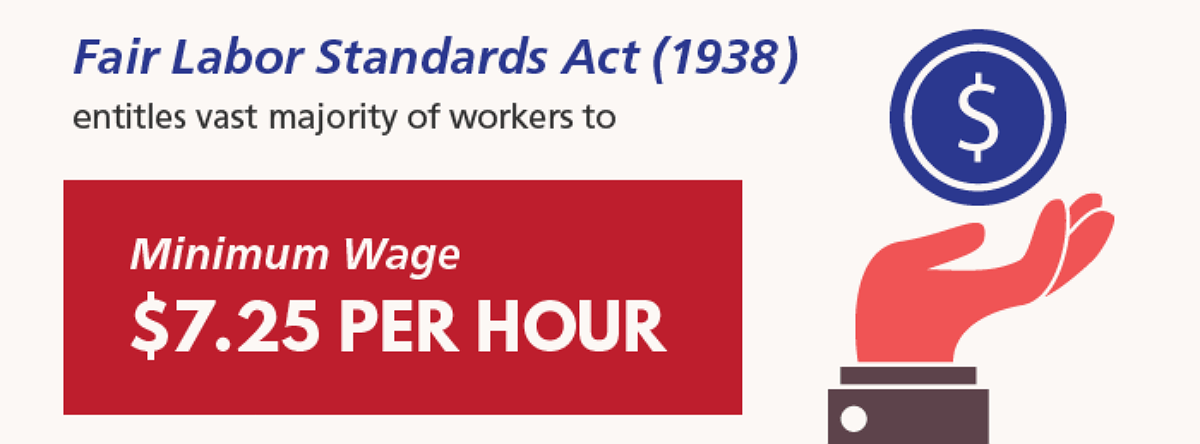Wage And Hour Laws: Common Violations And How To Protect Yourself
Wage and hour laws are designed to ensure that employees are properly compensated for the hours they work. Unfortunately, some employers may violate these laws and underpay their staff. Both employers and employees need to be aware of common violations so they can protect themselves from legal issues.
This article will provide an overview of the commonly violated wage and hour regulations as well as strategies for staying in compliance with applicable laws.
Common Violations
One of the most common violations of wage and hour laws is failure to pay minimum wage. Employers are required to pay their employees at least the minimum wage set by federal or state law. Failure to do so can result in legal action against the employer.
Another violation is failure to pay overtime wages. Employees who work more than 40 hours per week are entitled to overtime pay, which is one and a half times their regular rate of pay.
Another violation that often occurs is the misclassification of employees as independent contractors. This allows employers to avoid paying taxes and benefits for those workers, but it also means that those individuals are not protected by many labor laws, including minimum wage and overtime requirements.
It’s important for individuals who believe they have been misclassified by independent contractors to speak with Palmdale workers’ comp attorneys or contact their state’s Department of Labor.
Protecting Against Violations
One of the most common violations of wage and hour laws is not paying employees for all hours worked. Some employers may try to avoid paying overtime by asking employees to work off the clock, or not counting all hours worked, including breaks and training time. To protect yourself against such violations, it is important to keep track of your own hours worked and make sure you are being paid fairly for each hour.
Another violation is misclassifying employees as exempt from overtime pay when they are eligible. This can happen if an employer classifies someone as a salaried employee but does not meet the criteria set forth by wage and hour laws. To protect yourself, know what your job duties entail and whether they fall under exemptions for overtime pay.
Managing Overtime Hours
Managing overtime hours can be a tricky task for employers. Overtime pay is required when an employee works more than 40 hours in a workweek, and failure to pay correct overtime wages can lead to serious legal consequences.
One common violation that employers make is misclassifying employees as exempt from overtime pay when they are non-exempt. This mistake often occurs when an employer incorrectly assumes that all salaried employees are automatically exempt from overtime, but this is not always the case.
Another issue related to managing overtime hours is ensuring that employees accurately record their time worked, particularly if they work remotely or have flexible schedules. Employers must establish clear policies and procedures for recording time worked, and should regularly monitor compliance with these policies to avoid any discrepancies or disputes over unpaid wages.
Employee Misclassification
Employee misclassification is a common violation of wage and hour laws that can leave workers without the proper benefits and compensation they are entitled to. Misclassification occurs when an employer classifies a worker as an independent contractor rather than an employee. This practice is often used to avoid paying payroll taxes, providing benefits, and complying with other employment laws.
Misclassified employees can be denied access to crucial benefits such as overtime pay, minimum wage protection, unemployment insurance, and worker’s compensation. This lack of coverage can have serious financial consequences for workers who may face unexpected expenses or injuries on the job. It also harms employers who engage in fair practices by creating unfair competition in the marketplace.
Unpaid Wages & Breaks
Unpaid wages and breaks are common violations of wage and hour laws. Employers may try to cut corners by not paying overtime, misclassifying employees as exempt, or failing to pay for all hours worked. Get in Touch With Can Law Group to significant financial losses for employees who are entitled to fair compensation.
Another way employers violate wage and hour laws is by denying workers their legally required breaks. In many states, employees are entitled to meal and rest breaks during their shift. However, some employers may deny these breaks or require workers to work through them without additional compensation.
Employees need to know their rights when it comes to wage and hour laws so they can protect themselves from these types of violations. By keeping track of your work hours, understanding your state’s labor laws, and speaking up if you believe your employer is violating these laws, you can ensure that you receive the proper pay and break entitlements that you deserve.
Conclusion
In conclusion, wage and hour laws are in place to protect employees from being exploited and underpaid by their employers. It is important for both employers and employees to understand these laws and comply with them accordingly. Common violations of wage and hour laws include failure to pay minimum wage, failure to pay overtime, misclassification of employees as independent contractors, and illegal deductions from employee paychecks.
If you suspect that your employer is violating wage and hour laws, it is important to gather evidence of the violation before taking any action. This may include keeping a record of your hours worked or collecting documentation related to your wages or benefits. You can then report the violation to the appropriate government agency or seek legal assistance.
Ultimately, understanding your rights as an employee under wage and hour laws can help protect you from unfair treatment in the workplace. By staying informed about these regulations and advocating for yourself when necessary, you can ensure that you are being fairly compensated for your work.



Post Comment